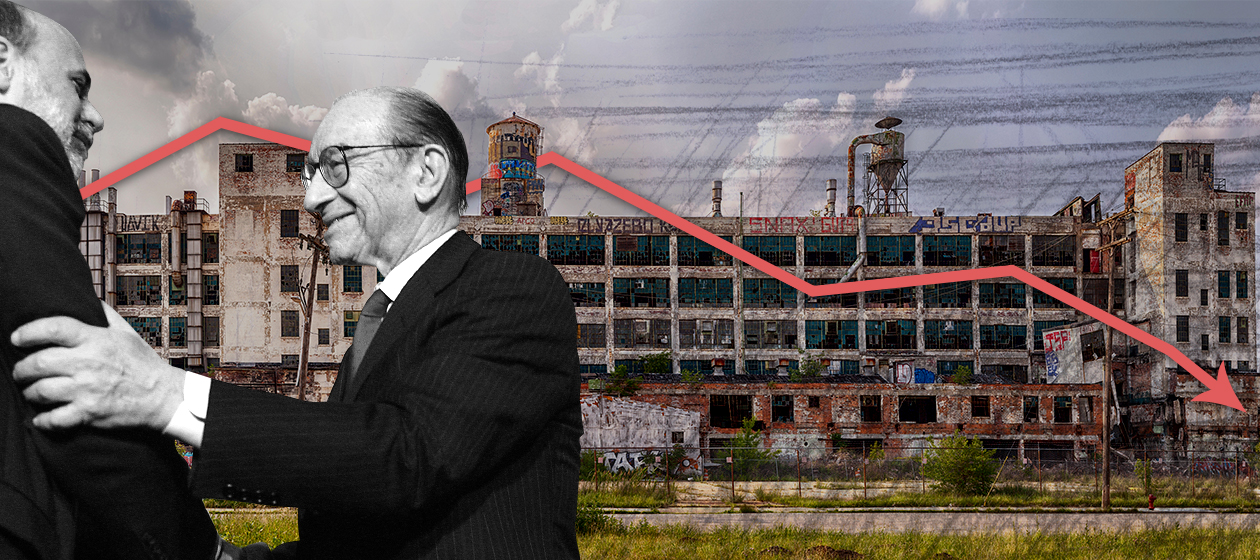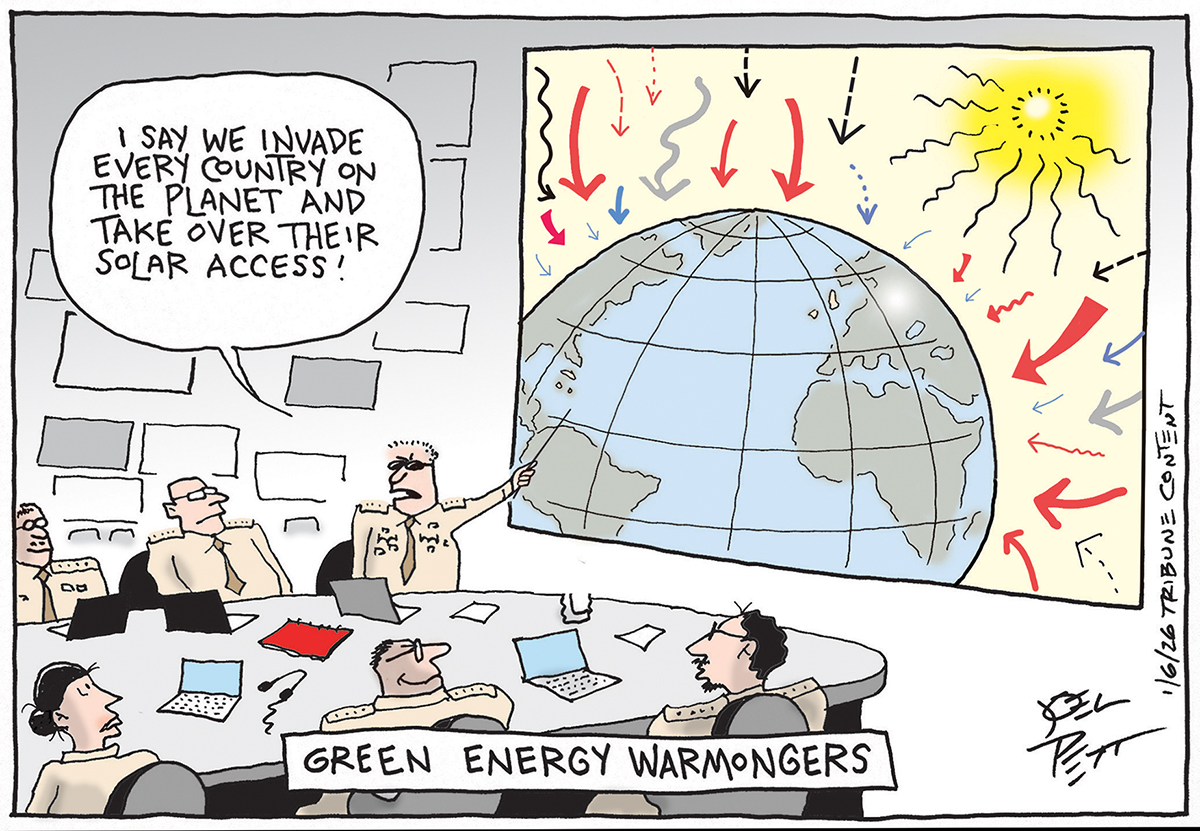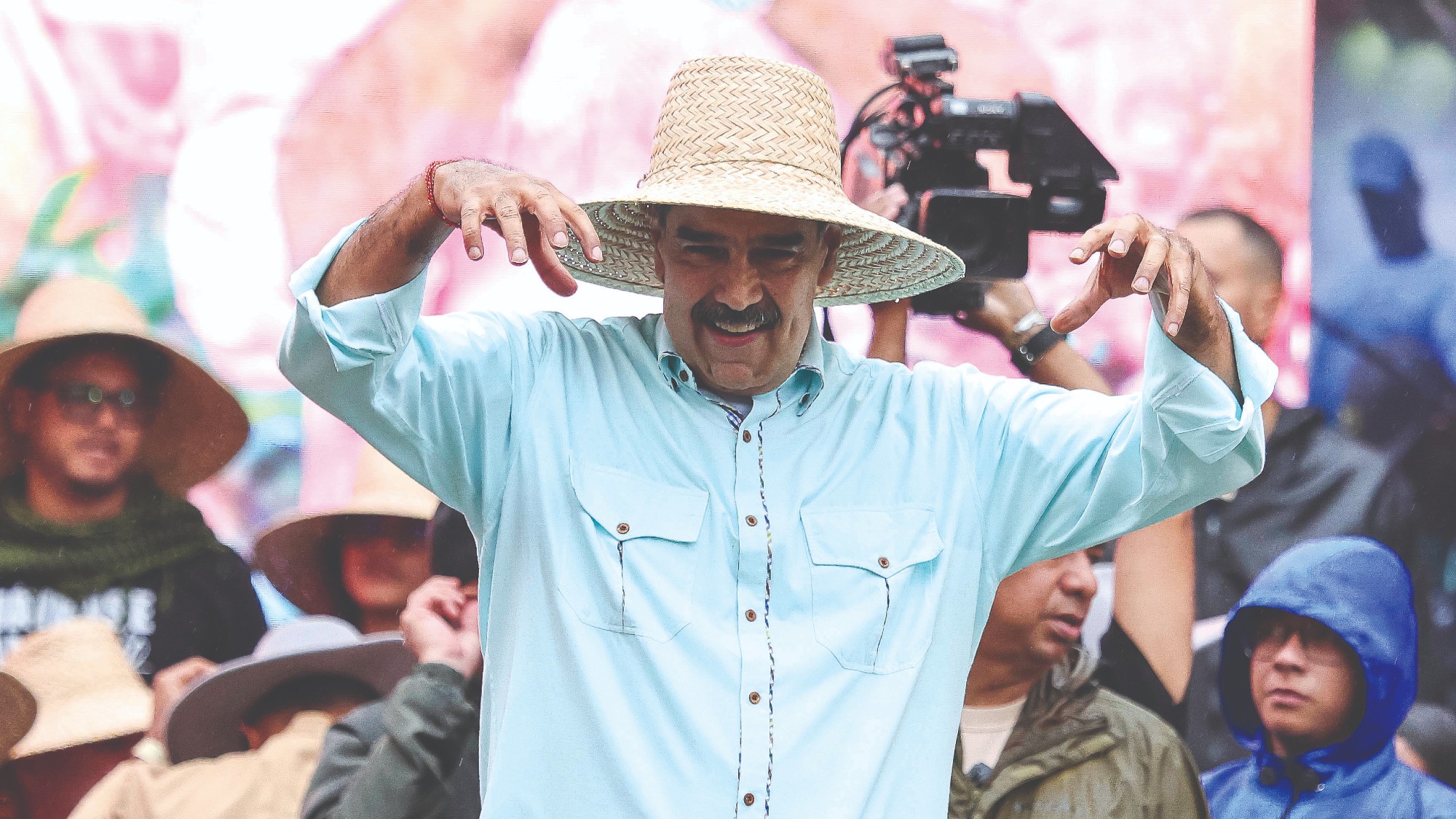How the capitalist class is strangling the American economy
America's business community doesn't care about growth. It cares about profits and subservience.


If you stand on your head, close one eye, squint, and take a massive rip of DMT, it looks like we just might be brushing up against full economic capacity.
America gained 244,000 jobs in May, and 213,000 in June. Payroll growth has been down just slightly, but finally the number of job seekers has dipped slightly below the number of job openings. Meanwhile, inflation has been ticking up slightly. All around, there are at least faint signs of hope.
In response, the capitalist class is stoking one of its signature coordinated freakouts. At business house organ CNBC, Jeff Cox writes with aching pathos: "America's labor shortage is approaching epidemic proportions, and it could be employers who end up paying." (Pardon me briefly to dry the tears from my cheeks.)
The Week
Escape your echo chamber. Get the facts behind the news, plus analysis from multiple perspectives.

Sign up for The Week's Free Newsletters
From our morning news briefing to a weekly Good News Newsletter, get the best of The Week delivered directly to your inbox.
From our morning news briefing to a weekly Good News Newsletter, get the best of The Week delivered directly to your inbox.
This is pretty obnoxious. But it's also illustrative of how capitalists strangle the American economy.
To review: Though it has been largely forgotten or ignored, the American economy has not remotely recovered fully from the Great Recession. While unemployment is low and growth at least trundling along, economic output crashed badly in 2008, and instead of catching up to trend, growth kinked down by something like 40 percent. This is because of the inadequate Obama-era stimulus, and the turn to austerity after 2010.
As a result, we are further away today from the 1945-2007 trend than we were in 2010, and it's getting worse with every passing year. Productivity has also consistently been far below average since about 2011. If we had just followed the previous pattern of catch-up growth after recessions, American output would be something like $3 trillion (or more than the GDP of California) more than it is in reality. Indeed, we are now doing worse on this metric than at a similar point after the Great Depression.
It is virtually certain that a lot of that lost growth could be restored with a program of ferocious economic stimulus and investment, because that is exactly what happened during the war mobilization from 1940-1945. Before that time, the American economy was stuck in a very similar sand pit, unable to muster the political energy to attack the depression with enough force to fix it fully. Franklin Roosevelt's Democrats did fix about half of it with the New Deal, but they got cold feet in 1937 and turned to austerity, dropping the economy right back into depression. It took the war to break through the political deadlock.
A free daily email with the biggest news stories of the day – and the best features from TheWeek.com
Alas, any sort of turbo-stimulus and investment seems out of the question. President Trump's tax cuts were a stimulus of sorts, but the weakest kind, and will also tend to increase inequality and thus sap growth.
It's possible some of the lost ground might be made up through ordinary economic activity, with more people getting jobs and spending, leading to more sales and investment, and so forth. But that can only happen if the Federal Reserve doesn't throttle the recovery. By raising interest rates across the country, they make it harder to get credit, and thus slow the economy down. (Monetary policy may not be great at stimulating a severely depressed economy, but it can unquestionably slow one down.)
But that is precisely what the Fed has been doing for the past three years, driven by exactly this sort of pressure from the business community. Whether we could have undone some of the damage of the Great Recession by "letting it ride" as Alan Greenspan did in the late '90s is an experiment that will go untried. The Fed is going to lock in this crummy economy and make the damage of the 2008 crash permanent.
Why the capitalist class does this is something of a mystery. Don't they love growth? Well, they do, but only under the right circumstances. They present themselves as concerned with growth, productivity, and output above all else, but it turns out they are in reality a lot more concerned with high profits and a politically quiescent working class. A big economic boom is fine, but a tight labor market requiring wage increases that come out of the capitalist share of the corporate surplus — or worse, workers confident that they can get another job organizing union drives — is horrifying to them. Our capitalist overlords think they deserve easy profits and beaten-down workers who will take crappy wages and bad benefits without a peep or protests, and mobilize politically to rig the economy to make that happen.
America is at the cutting edge of rich nations today, but in 50 years it could easily be a stagnant backwater. If we want to restore strong growth, it will require breaking the political power of the capitalist class.
Ryan Cooper is a national correspondent at TheWeek.com. His work has appeared in the Washington Monthly, The New Republic, and the Washington Post.
-
 Political cartoons for January 11
Political cartoons for January 11Cartoons Sunday’s political cartoons include green energy, a simple plan, and more
-
 The launch of the world’s first weight-loss pill
The launch of the world’s first weight-loss pillSpeed Read Novo Nordisk and Eli Lilly have been racing to release the first GLP-1 pill
-
 Maduro’s capture: two hours that shook the world
Maduro’s capture: two hours that shook the worldTalking Point Evoking memories of the US assault on Panama in 1989, the manoeuvre is being described as the fastest regime change in history
-
 The billionaires’ wealth tax: a catastrophe for California?
The billionaires’ wealth tax: a catastrophe for California?Talking Point Peter Thiel and Larry Page preparing to change state residency
-
 Bari Weiss’ ‘60 Minutes’ scandal is about more than one report
Bari Weiss’ ‘60 Minutes’ scandal is about more than one reportIN THE SPOTLIGHT By blocking an approved segment on a controversial prison holding US deportees in El Salvador, the editor-in-chief of CBS News has become the main story
-
 Has Zohran Mamdani shown the Democrats how to win again?
Has Zohran Mamdani shown the Democrats how to win again?Today’s Big Question New York City mayoral election touted as victory for left-wing populists but moderate centrist wins elsewhere present more complex path for Democratic Party
-
 Millions turn out for anti-Trump ‘No Kings’ rallies
Millions turn out for anti-Trump ‘No Kings’ ralliesSpeed Read An estimated 7 million people participated, 2 million more than at the first ‘No Kings’ protest in June
-
 Ghislaine Maxwell: angling for a Trump pardon
Ghislaine Maxwell: angling for a Trump pardonTalking Point Convicted sex trafficker's testimony could shed new light on president's links to Jeffrey Epstein
-
 The last words and final moments of 40 presidents
The last words and final moments of 40 presidentsThe Explainer Some are eloquent quotes worthy of the holders of the highest office in the nation, and others... aren't
-
 The JFK files: the truth at last?
The JFK files: the truth at last?In The Spotlight More than 64,000 previously classified documents relating the 1963 assassination of John F. Kennedy have been released by the Trump administration
-
 'Seriously, not literally': how should the world take Donald Trump?
'Seriously, not literally': how should the world take Donald Trump?Today's big question White House rhetoric and reality look likely to become increasingly blurred
